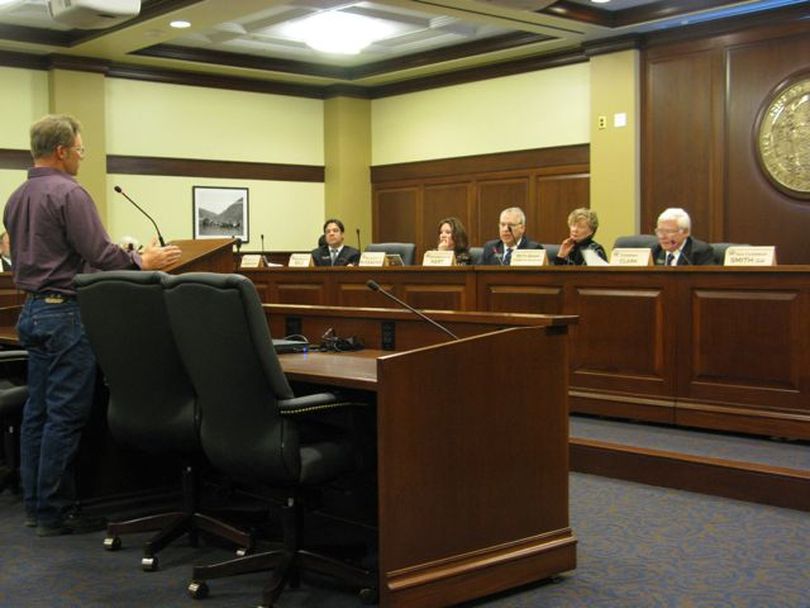Commissioner: ‘Time and mutual respect’

Testimony is continuing the hearing on the tribal law enforcement bill. Here's some of it:
Don Ebert, Clearwater County commissioner, told the House Judiciary Committee, "We don't have any problems to fix. We get along good with the tribe. It used to be there were differences of opinion, animosities, maybe some strained racial relations. In the past seven, eight years we've pretty well respected one another, do things together. ... You try to fix something and sometimes you make it worse. I'm afraid that if this bill goes through it will actually make our situation worse." Rep. Phil Hart, R-Athol, asked Ebert what caused his county's animosities with the tribe to dissipate. "I've always respected the tribe," he said. He noted that there were tensions when some county officials were involved with a jurisdictional alliance, and a Harvard mediator helped all sides work that out. Then, negotiations over the Snake River Basin Adjudication required the sides to talk. "I don't know," he said, "just time, I guess, and mutual respect."
Jeanne Buell, who said she was just testifying as a citizen and area resident, said the tribal police were the first responders at two serious car accidents involving her family members on Highway 95. "They're responsive, they're polite, and very professional," she said.
Rep. Dick Harwood, R-St. Maries, testified against the bill. "Depriving one's liberties is pretty much unconstitutional I think, and what I mean by that is the way it works now," if a constituent comes to him with concerns about a state agency, "we know who to go to ... we work our way up the ladder. ... If this goes forward and the tribes ... get this kind of a status, we have nowhere to go. You're depriving the liberties of the non-tribal member because they have no place to go to stop their grievances, because you don't get a vote in the tribal government, they have no place to go." Harwood added, "When somebody gets a problem, gets crossways with somebody, we have an elected official they can go to who'll stand accountable to the voters, and they don't have that." Harwood said he didn't think a bill was needed. "I would think we could work it out, to tell you the truth," he said, "but I think we need a mediator to do it."
